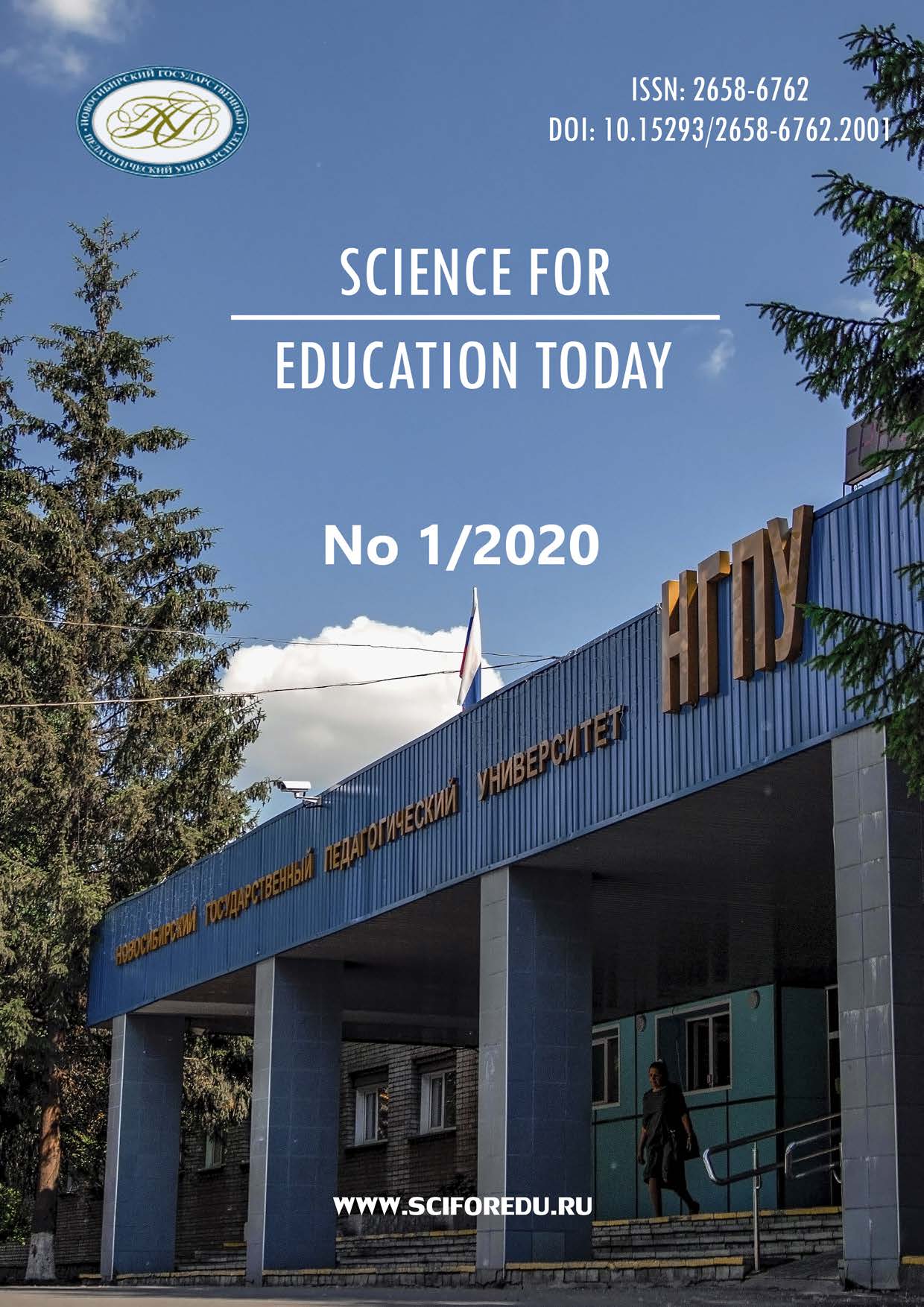Субъективное восприятие школьниками психологической защищенности в пространстве межличностных отношений с педагогом
Subjective perception of psychological security by schoolchildren in the space of in-terpersonal relations with the teacher
Author(s): Anna Yuryevna Kachimskaya, Yulia Viktorovna SmykSubject(s): School education, Educational Psychology, Sociology of Education
Published by: Новосибирский государственный педагогический университет
Keywords: Interpersonal relations; Psychological safety; Psychological security; Subjective perception; Psychological threat; Psychological pressure; Personality subjectivity; Personal resources;
Summary/Abstract: The authors study the problem of creating a psychologically safe educational environment through the transformation of relationships between teachers and schoolchildren. The purpose of the article is to identify the characteristics of the subjective perception of psychological security by students of different ages as a factor in the safe and resourceful development of their personality in the space of interpersonal relations with a teacher. Materials and Methods. The methodological basis of the study was the ideas of Russian psychologists about children’s active position in the learning process, in particular, S.L. Rubinstein’s student-centered approach. The authors applied such theoretical methods as reviewing and analysis of scholarly literature on the safety of educational environment. The empirical methods included questionnaires, mathematical and statistical analysis of the research results. Results. Data obtained in studying the subjective perception of psychological security by schoolchildren in interaction with teachers are presented. Compared to primary school students, adolescents experience a greater degree of insecurity in their interaction with teachers. High school students pinpoint the factors of psychological threat, among which subjective importance is dominated by coercion by teachers to rigorously fulfill educational requirements. At the same time, the age-related features of the development of senior schoolchildren provide them with the opportunity to use developed intrapersonal resources to cope with the situation of psychological distress at school. The data obtained highlight the role of the student and the role of the teacher in the process of ensuring the psychologically safe educational environment of the school. Conclusions. The study concludes that subjective perception of psychological security is determined by age-specific factors. Psychological safety of educational relations among students of different ages is provided either by the determining position of the teacher, or by the resource potential of the student’s personality itself.
Journal: Science for Education Today
- Issue Year: 10/2020
- Issue No: 1
- Page Range: 97-111
- Page Count: 15
- Language: Russian

